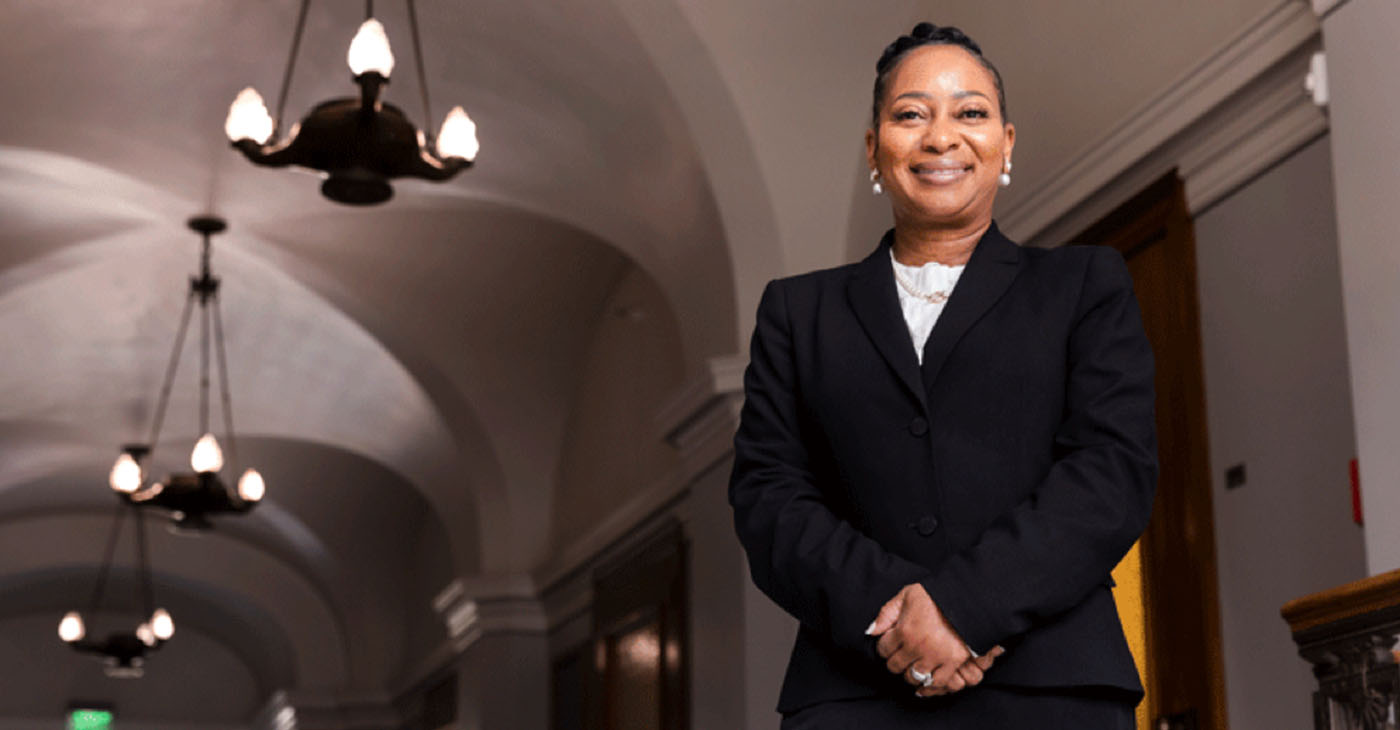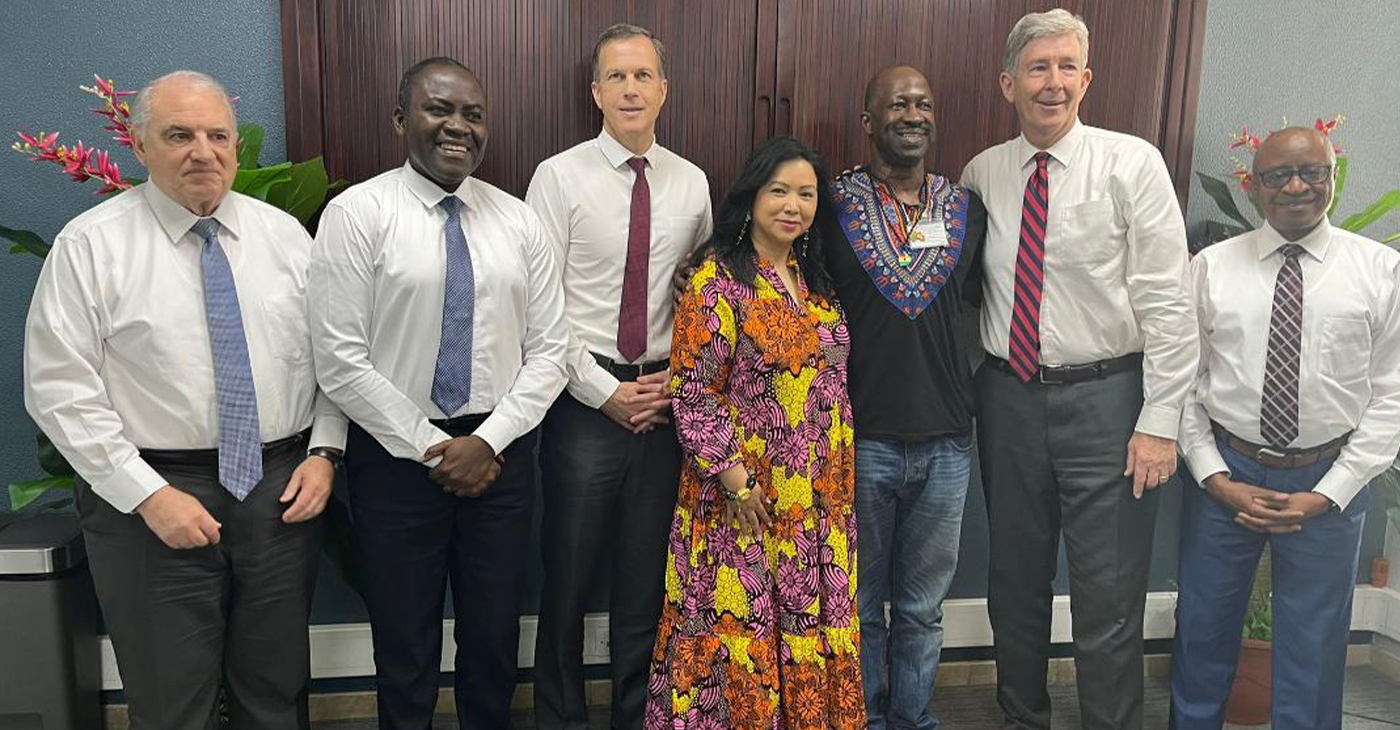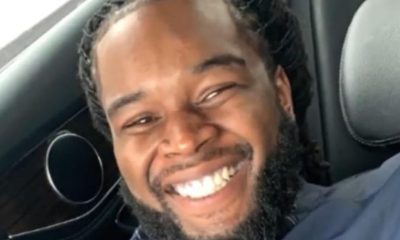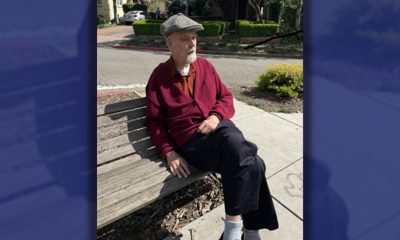Activism
For New UC Berkeley Chief Yogananda Pittman, Building Trust Is Key to Modern Police Work
Now, after helping to guide the force through a time of crisis and rapid change, Pittman will become chief of the UC Berkeley Police Department. Starting Feb. 1, she will lead an ambitious initiative, begun under retiring Chief Margo Bennett, to broadly modernize campus police operations and strengthen sometimes strained community relations.

In the hours after the Jan. 6 mob attack on the Capitol, veteran police leader Yogananda Pittman faced a profoundly difficult choice: She was offered the position of interim chief of the U.S. Capitol Police, a post for which she’d been preparing for nearly two decades, but it would mean taking charge of a department that was reeling and certain to face intense scrutiny and pressure to reform.
Some, sensing a no-win assignment, would have declined it. Pittman, however, said yes, not so much out of ambition as out of a belief that leaders must lead — and seize the opportunity for reform — even in chaotic conditions. Two days after the insurrection, she became the first Black woman to lead the Capitol Police.
Now, after helping to guide the force through a time of crisis and rapid change, Pittman will become chief of the UC Berkeley Police Department. Starting Feb. 1, she will lead an ambitious initiative, begun under retiring Chief Margo Bennett, to broadly modernize campus police operations and strengthen sometimes strained community relations.
“Nothing is more important than the safety and well-being of our community, and I am confident that Yogananda Pittman has all of the skills, qualities, and experience necessary to excel as our next police chief at UC Berkeley,” said Chancellor Carol Christ. “Chief Pittman’s remarkable record of achievement and her steadfast commitment to reform and social justice make her perfectly suited for this essential leadership role on the Berkeley campus.”
Pittman will direct a police force of about 140 officers, community safety officers and staff, with an annual budget of $15 million. In recent years, the campus police department has struggled with reduced budgets, depleted ranks, and rising crime.
Like other urban police agencies nationwide, Berkeley’s at times seems caught between competing pressures from advocates — including students and parents — who want a stronger police presence on campus, and those who would abolish the department and use the funds for social welfare programs.
For Pittman, that’s a new landscape. But in an interview, she said that her experience in policing, leadership, and diplomacy have prepared her to build essential bridges. Respect for diversity and inclusion will be crucial, she said. So will be listening.
“In the first 100 days after I arrive,” Pittman said, “I want to have a campaign of meetings with all of the entities that have a vested interest in safety and security on campus. Once I understand what everyone’s concerns are, then we’ll be able to come up with ways to address those concerns.
“To achieve change, it helps to have leaders who have deep professional experience, but who also know the perspective of people who have been on the receiving end of unfortunate encounters with law enforcement.”
A commitment to social justice leads to a career in police work
Pittman’s path to law enforcement and her rise to its highest ranks have been shaped by unexpected choices and extraordinary challenges.
She grew up in Cambridge, Maryland, a Chesapeake Bay community not far from Washington, D.C. In the 18th century, the town was a center of the slave trade; two centuries later, in the 1960s, it was a national flashpoint for the modern civil rights movement.
Her adoptive parents died when they were young, and she was raised by her aunt, the Rev. Enez Stafford-Grubb, a minister at Bethel African Methodist Episcopal Church in Cambridge and a prominent civil rights organizer.
Education, service, justice — these were core values in Pittman’s family. She earned a bachelor’s degree in psychology in 1999 from Morgan State University, a historically Black research university in Baltimore.
But then came the decision that, from the outside, might seem surprising: To be an agent for social change, Pittman reasoned, she could be more effective working within an institution, rather than challenging it from the outside.
As a police officer for 20 years, she maintained that approach through a series of historic crises that have reordered the American political and social landscape.
She was sworn in to active duty on the Capitol Police force just a few hours after the Sept. 11, 2001, terror attacks on New York City and Wash., D.C. In the ensuing years came the presidential inaugurations of Barack Obama and then Donald Trump, a seeming epidemic of police violence against Black people, and the insurrection against U.S. democracy on Jan. 6, 2021.
A quiet, persistent struggle against the forces of racism and sexism
As Pittman rose through the ranks, taking promotions with more responsibility and more influence, it seemed that race and gender were constant themes — not just in the national landscape, but in her own career, and in her family.
“When I came onto the Capitol Police force,” she recalled, “there were zero persons of color in leadership and definitely not any women — zero, none.”
“It was not easy. As I continued to get promoted, I was oftentimes the only woman and always the only person of color in the room. And more often than not, people let me know that I wasn’t welcome, that I wasn’t part of the team. They questioned my capabilities.”
“But coming from my hometown, from my parents, and from Morgan State University, your mind is trained to believe just the opposite: ‘I am just as good, if not better, than anybody in this room.’”
At the same time, she experienced the crisis in American policing through her two sons, young Black men who today are ages 22 and 17.
“Even in 2022,” she said, “I’ve had to have the talk with them about what not to do when you engage with police. I’m a police chief, and I have all this knowledge about law enforcement tactics, and I’m still fearful of what happens if they get pulled over. I can only imagine what the average mother feels when her son goes out the door.”
And so, even as she pursued her day-to-day work, she had a parallel goal: to help lead the way toward a more diverse, more inclusive Capitol Police culture.
“This was not just some statement, or to check a box,” Pittman explained. “We really worked to make the culture different, because the men and women of the organization deserve it.”
The terror of Jan. 6: Capitol Police ‘saved democracy that day’
So many of these deep social conflicts were present — but dangerously unresolved — in the days leading up to Jan. 6, 2021. That was the date that Congress had set for certifying Joe Biden’s election as president, and it was to be a crucial test for American democracy.
Pittman said the Capitol Police had substantial evidence that extremists could pose a violent threat to the certification, and to the safety of lawmakers. Then-Chief Steven Sund repeatedly asked the sergeants-at-arms for the House and the Senate to use their power to declare an emergency and to put the National Guard on standby, but they refused.
And then, on Jan. 6, an estimated 30,000 protesters marched to the Capitol, where the Capitol Police had 1,200 officers on duty. Some 2,500 rioters breached the building. Vastly outnumbered, the officers, along with reinforcements from other departments, engaged in hand-to-hand combat with extremists for over five hours.
In retrospect, Pittman sees their efforts as heroic.
“I could not be more proud of the men and women of U.S. Capitol Police,” she said. “The votes to certify the election were counted. We achieved the transfer of power. It was not pretty, but because our officers stood, our democracy didn’t fall.”
“They saved democracy that day.”
After the insurrection, a reckoning
In the immediate aftermath, there was a brutal accounting: Within hours after the battle, two officers were dead. Over 100 others were injured. The Capitol building sustained damage approaching $3 million.
Sund resigned the next day. The sergeants-at-arms of the House and Senate soon followed.
On Jan. 8, Pittman became the first Black person and the first woman to lead the Capitol Police — and while that might have been a cause for celebration, she quickly became the focus of blame and recrimination.
At first, that seemed a distraction. There was work to be done: consoling the families of deceased colleagues, connecting with the injured cops, and restoring order and morale in the department. Biden’s inauguration was just days away, and the police had to be ready.
But as time passed, she came to understand what was driving the criticism. Not that she agreed — she saw the insurrection and the Capitol Police response as the confluence of many forces, across many institutions, converging over time toward a systemic breakdown. No single person or department was to blame.
But as the department’s former head of intelligence, and now its chief, she had to take responsibility.
“As a leader,” she said, “the more you can embrace your mistakes, own them, take full accountability for them, that’s the only way you’re going to get past them. You open yourself up to learn better ways. And that’s what we did.”
In the ensuing months, the deeper toll of Jan. 6 became clear. Four officers who defended the Capitol on Jan. 6 took their own lives. Others suffered post-riot psychological trauma.
During her time as acting chief, Pittman guided an intensive reform campaign. New tactics, training and equipment were put in place to make sure that department personnel were prepared for future crises, while new programs and services aimed to support a traumatized workforce.
In July 2021, a new permanent chief was named, and Pittman returned to the rank of assistant chief. Last week, after 21 years on the job, she announced her retirement from the Capitol Police, effective early in 2023.
“D.C. has changed,” she said. “Our democracy is being challenged in ways that we never expected or never imagined…I don’t ever run from a challenge, but I know I’ve left the department I served in a much better space than we were prior to Jan. 6.”
At Berkeley, ‘we can … really show the world what’s possible’
Last summer in downtown Cambridge, an artist completed a brightly colored outdoor mural featuring 12 pioneering women from surrounding Dorchester County. Among them are Harriet Tubman, the iconic antislavery activist; Donna Wolf Mother Abbott, the first woman chief of the Nause Waiwash tribe; and Bea Arthur, an actor on stage and screen. And in the lower left corner? Yogananda Pittman, smiling in her blue watch cap and uniform.
Her place in the mural reflects the place of honor she holds in her hometown and in much of the Wash., D.C., area. She hadn’t foreseen the day that she would leave, but when Berkeley reached out to discuss the coming vacancy on its police force, she was intrigued.
Through her sons, Pittman has an affinity for young adults. She’s drawn to academic culture. She has a master’s degree in public administration, and she’s working on the final chapters of her Ph.D. thesis in that field, focused on gender diversity in law enforcement. She’s inspired to see that at UC Berkeley, racism is seen as a public health issue.
Of course, in ways both superficial and profound, the U.S. Capitol in Washington is a long way from the Berkeley campus. One features the nation’s highest-ranking elected officials and visiting dignitaries; the other, extraordinary scholars and young people who are just beginning to find their way in life.
But Pittman and university officials are focused on the points these geographies hold in common. Both are sprawling campuses with diverse communities numbering in the tens of thousands. While the Berkeley police department is far smaller than the Capitol’s, both must manage a range of threats to safety and security.
“The environment for policing on large, urban campuses is challenging,” said Marc Fisher, Berkeley’s vice chancellor for administration. “This is a nationwide phenomenon, and Berkeley is not immune. But in Chief Pittman, we have a leader of incredible personal and professional experience. She has confronted extraordinary challenges and achieved results, both in policing and community-building.
“We are very fortunate to have her join the UC Berkeley Police Department.”
Pittman will arrive as a leader in managing a multi-year campus security reform program, initiated in 2020, to improve emergency management, mental health crisis response and security technology, and to strengthen relations with diverse communities.
She has experience in all of those areas. She’s already met with campus officers during a recent visit to their headquarters in the basement of Sproul Hall. She said she “connected with them immediately.”
Beyond that, though, she’s not offering specific plans or bold pronouncements. Instead, she said, her early days in office will be for listening, learning, understanding — and building trust and legitimacy. It’s a topic that she’s spoken about recently to groups in Canada and Germany.
To those debating the need for protection from crime versus a greater commitment to social services, Pittman answers that both are needed. The goal is building consensus for a balanced approach.
“There does not have to be an either-or in terms of policing and much-needed mental health services, services for the unhoused or drug and rehabilitation services,” she said.
“I’m confident that when we work together, we will find that balance to accommodate the needs of everyone.”
“I hope we can take the lessons we’ve learned and really show the world what’s possible.”
Activism
Oakland Post: Week of May 8 – 14, 2024
The printed Weekly Edition of the Oakland Post: Week of May May 8 – 14, 2024

To enlarge your view of this issue, use the slider, magnifying glass icon or full page icon in the lower right corner of the browser window. ![]()
Activism
S.F. Black Leaders Rally to Protest, Discuss ‘Epidemic’ of Racial Slurs Against Black Students in SF Public School System
Parents at the meeting spoke of their children as no longer feeling safe in school because of bullying and discrimination. Parents also said that reported incidents such as racial slurs and intimidation are not dealt with to their satisfaction and feel ignored.

By Carla Thomas
San Francisco’s Third Baptist Church hosted a rally and meeting Sunday to discuss hatred toward African American students of the San Francisco Unified School District (SFUSD).
Rev. Amos C. Brown, president of the San Francisco NAACP and pastor of Third Baptist Church, along with leadership from local civil rights groups, the city’s faith-based community and Black community leadership convened at the church.
“There has been an epidemic of racial slurs and mistreatment of Black children in our public schools in the city,” said Brown. “This will not be tolerated.”
According to civil rights advocate Mattie Scott, students from elementary to high school have reported an extraordinary amount of racial slurs directed at them.
“There is a surge of overt racism in the schools, and our children should not be subjected to this,” said Scott. “Students are in school to learn, develop, and grow, not be hated on,” said Scott. “The parents of the children feel they have not received the support necessary to protect their children.”
Attendees were briefed last Friday in a meeting with SFUSD Superintendent Dr. Matt Wayne.
SFUSD states that their policies protect children and they are not at liberty to publicly discuss the issues to protect the children’s privacy.
Parents at the meeting spoke of their children as no longer feeling safe in school because of bullying and discrimination. Parents also said that reported incidents such as racial slurs and intimidation are not dealt with to their satisfaction and feel ignored.
Some parents said they have removed their students from school while other parents and community leaders called on the removal of the SFUSD superintendent, the firing of certain school principals and the need for more supportive school board members.
Community advocates discussed boycotting the schools and creating Freedom Schools led by Black leaders and educators, reassuring parents that their child’s wellbeing and education are the highest priority and youth are not to be disrupted by racism or policies that don’t support them.
Virginia Marshall, chair of the San Francisco NAACP’s education committee, offered encouragement to the parents and students in attendance while also announcing an upcoming May 14 school board meeting to demand accountability over their mistreatment.
“I’m urging anyone that cares about our students to pack the May 14 school board meeting,” said Marshall.
This resource was supported in whole or in part by funding provided by the State of California, administered by the California State Library via California Black Media as part of the Stop the Hate Program. The program is supported by partnership with California Department of Social Services and the California Commission on Asian and Pacific Islander American Affairs as part of the Stop the Hate program. To report a hate incident or hate crime and get support, go to CA vs Hate.
Activism
Oakland Ambassadors Strengthen Ties and Aid Efforts in Ghana
Oakland natives and esteemed members of the African American Sports and Entertainment Group (AASEG), Jonathan P. Jones and Dr. Maritony Efua Jones, recently embarked on a significant journey to Ghana as guests of the World Martial Authority Ghana. This trip signifies a crucial opportunity to bolster partnerships, explore new avenues of collaboration, and contribute to impactful initiatives in Ghana.

By Post Staff
Oakland natives and esteemed members of the African American Sports and Entertainment Group (AASEG), Jonathan P. Jones and Dr. Maritony Efua Jones, recently embarked on a significant journey to Ghana as guests of the World Martial Authority Ghana.
This trip signifies a crucial opportunity to bolster partnerships, explore new avenues of collaboration, and contribute to impactful initiatives in Ghana.
Upon their arrival at Katota Airport in Accra, Ghana, the Joneses were warmly received by His Royal Majesty Okatakyie Asafo Boakye III, the distinguished king of Sanzule Kingdom in the Eastern Nzema, and Etse Nyamedi of World Martial Authority, Ghana.
Nyamedi accompanied the Joneses to the city of Mepe, which had recently experienced flooding, to assess damages and engage with local leaders, elders, and youth regarding the city’s urgent needs after major floods last fall.
Key concerns and priorities identified by the community include comprehensive flood mitigation measures, agricultural support, housing initiatives, educational enhancements, improved healthcare access, and the development of communal recreational spaces.
The Joneses were also graciously invited to meet with leaders of The Church of Jesus Christ of Latter-day Saints at their headquarters in Accra. This meeting provided insights into ongoing humanitarian efforts in Ghana and explored avenues for collaboration to further assist Ghanaian communities.
The LDS leaders shared their prompt response to the recent flood, demonstrating their commitment to humanitarian aid by dispatching substantial supplies including medical provisions, sanitation items, blankets, and food to assist flood victims just four days after the disaster.
Additionally, Boakye extended a special invitation to the Joneses to his palace, where they were pleasantly surprised with a heartfelt recognition ceremony. Maritony Jones was honored as the Queen Mother of the Sanzule Kingdom in acknowledgment of her dedicated work, while Jonathan Jones was lauded and welcomed as the ambassador of the Sanzule Kingdom, symbolizing a meaningful homecoming to their ancestral land.
The visit not only strengthens ties between Oakland and Ghana but also underscores the collaborative spirit and commitment to meaningful progress and humanitarian endeavors shared by all involved parties.
-

 Community4 weeks ago
Community4 weeks agoFinancial Assistance Bill for Descendants of Enslaved Persons to Help Them Purchase, Own, or Maintain a Home
-

 City Government1 week ago
City Government1 week agoCourt Throws Out Law That Allowed Californians to Build Duplexes, Triplexes and RDUs on Their Properties
-

 Activism2 weeks ago
Activism2 weeks agoOakland Post: Week of April 24 – 30, 2024
-

 Business4 weeks ago
Business4 weeks agoV.P. Kamala Harris: Americans With Criminal Records Will Soon Be Eligible for SBA Loans
-

 Community4 weeks ago
Community4 weeks agoAG Bonta Says Oakland School Leaders Should Comply with State Laws to Avoid ‘Disparate Harm’ When Closing or Merging Schools
-

 Community3 weeks ago
Community3 weeks agoRichmond Nonprofit Helps Ex-Felons Get Back on Their Feet
-

 Community3 weeks ago
Community3 weeks agoOakland WNBA Player to be Inducted Into Hall of Fame
-

 Community3 weeks ago
Community3 weeks agoRPAL to Rename Technology Center for Retired Police Captain Arthur Lee Johnson



















































